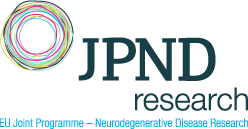Self-management
Self-management concerns the individual’s ability to manage the symptoms, treatment, physical and psychosocial consequences and life style changes inherent in living with a chronic condition (Source: Barlow et.al 2002.)
Self-management interventions share the common objectives of educating about the condition, optimising well-being, enhancing control over the situation and enabling people to take more responsibility for managing the condition. Self-management is central for reducing the impact of the disease because it has the potential to prevent premature loss of function in people with dementia. Benefits of self-management include improved knowledge, task performance, self-efficacy and aspects of health status. Most empirical work has focused on the self-efficacy component of this model. Self-efficacy is defined as the person’s belief of the individual’s performance of a specific action in a particular situation.
Despite the importance of self-management, very little work has been undertaken on either health promotion or self-management in people with dementia and their care partners. Very few studies have specifically reported self-management programmes, and neither of these presented quantitative outcomes. The SMART trial, a feasibility study which involved the development of a self-management group intervention for people with dementia, showed quantitative positive findings regarding self-efficacy and showed high satisfaction as reported qualitatively. A study of self-management has also demonstrated beneficial effects on the health-related quality of life of spouses and the cognitive function of persons with dementia.
Health promotion
Health promotion includes self-management components such as developing personal skills; but also covers a wider set of approaches such as public policy, supportive environments, community actions and health service perspectives. Evidence exists for the need to assist persons with early-stage dementia with health promotion to sustain their function, quality of life, and prevent premature loss of function or institutionalization. Earlier research has found that this intervention gave significant positive change on cognition and depression.
Preliminary findings from a Norwegian study show a significant improvement in self-rated health in early stage dementia, and participants’ measured cognitive abilities stayed stable during the 4 month follow-up, which was statistically significantly different from an average decline in dementia. There is also evidence that health promotion leads to improved self-efficacy in people with early-stage dementia. Other studies on health promotion for early-stage dementia have reported improved nutrition and health related quality of life and preventions of falls, and improvement in physical function.
E-learning for care partners
A systematic review found beneficial effects of internet-based interventions for care partners of people with dementia. The review demonstrated improvement in various aspects of carer wellbeing, e.g. confidence, depression and self-efficacy, given that the programs include multiple components and are tailored to the individual.






